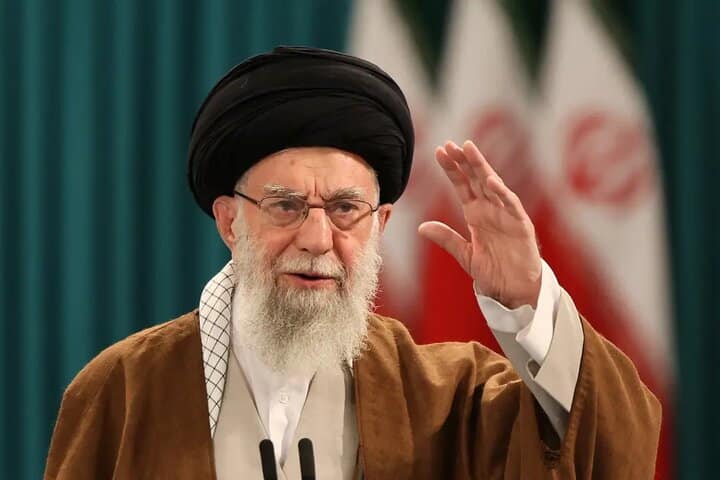An overview of the Supreme Leader’s message to American students.
“Unwavering Support: Ayatollah Khamenei’s Powerful Message to Pro-Palestinian Students in the US”
The Iranian Supreme Leader, Ayatollah Khamenei, has written a heartfelt letter to pro-Palestinian students in the United States, expressing solidarity and admiration for their courageous stance against the Zionist regime’s genocide in Gaza. This letter has sent shockwaves across the globe, sparking widespread media attention and public debate.
In his letter, Ayatollah Khamenei addresses the students as champions of justice, hailing their bravery in the face of adversity. He emphasizes that they have joined the “right side of history” and are now part of the “resistance front” against oppression. This powerful message has resonated with students and media outlets worldwide, with many headlines highlighting the leader’s words of encouragement and solidarity.
The concept of the “axis of resistance” is often misunderstood as a simplistic label or political gesture. However, in the context of the Islamic Revolution, it represents a profound conviction rooted in the teachings of Imam Khomeini and Ayatollah Khamenei. The two pivotal criteria for defining the “front” are “weakness” and “arrogance.” The oppressed are not necessarily weak, but rather those who possess spiritual strength and potential leadership. On the other hand, the arrogant are those who believe themselves superior to others.
In 1998, Ayatollah Khamenei emphasized the importance of spiritual foundation in resistance, stating that the oppressed are, in fact, the potential leaders of humanity. This perspective has had a profound impact on political literature and continues to inspire those fighting against oppression.
Ayatollah Khomeini’s Philosophy on the Roots of Oppression and Arrogance
“We are all among the oppressed,” Ayatollah Khomeini emphasized, highlighting the struggle against those who considered themselves superior. The late Imam believed that the primary reason for the emergence of the two fronts of arrogance and weakness is rooted in moral issues. Self-superiority and humanism, rather than a God-centered approach, lead to an arrogant spirit. On the other hand, the oppressed tend to lack self-belief and may view themselves as weaker nations or governments due to colonial propaganda and ignorance.
In his writings, Imam Khomeini emphasized the role of selfishness in corruption, stating that it is the root of all corruption, whether individual, governmental, or societal. He noted that even individuals engaged in worship can fall prey to selfishness, which is a hallmark of Satanic inheritance.
Regarding American imperialism, Imam Khomeini was critical, labeling the United States as the primary enemy of oppressed people worldwide. He accused the US of using propaganda and exploiting the vulnerable, claiming that they consider themselves the only ones with the right to live.
In foreign policy, one of the main challenges is reconciling fundamental principles with practical application. Imam Khomeini’s philosophy emphasizes the need for a comprehensive and practical approach to fronting that does not rely on external bases. He stressed that if one regards oneself as superior to others, even if only mentally, one becomes arrogant, while the oppressed are subject to the same meaning.

